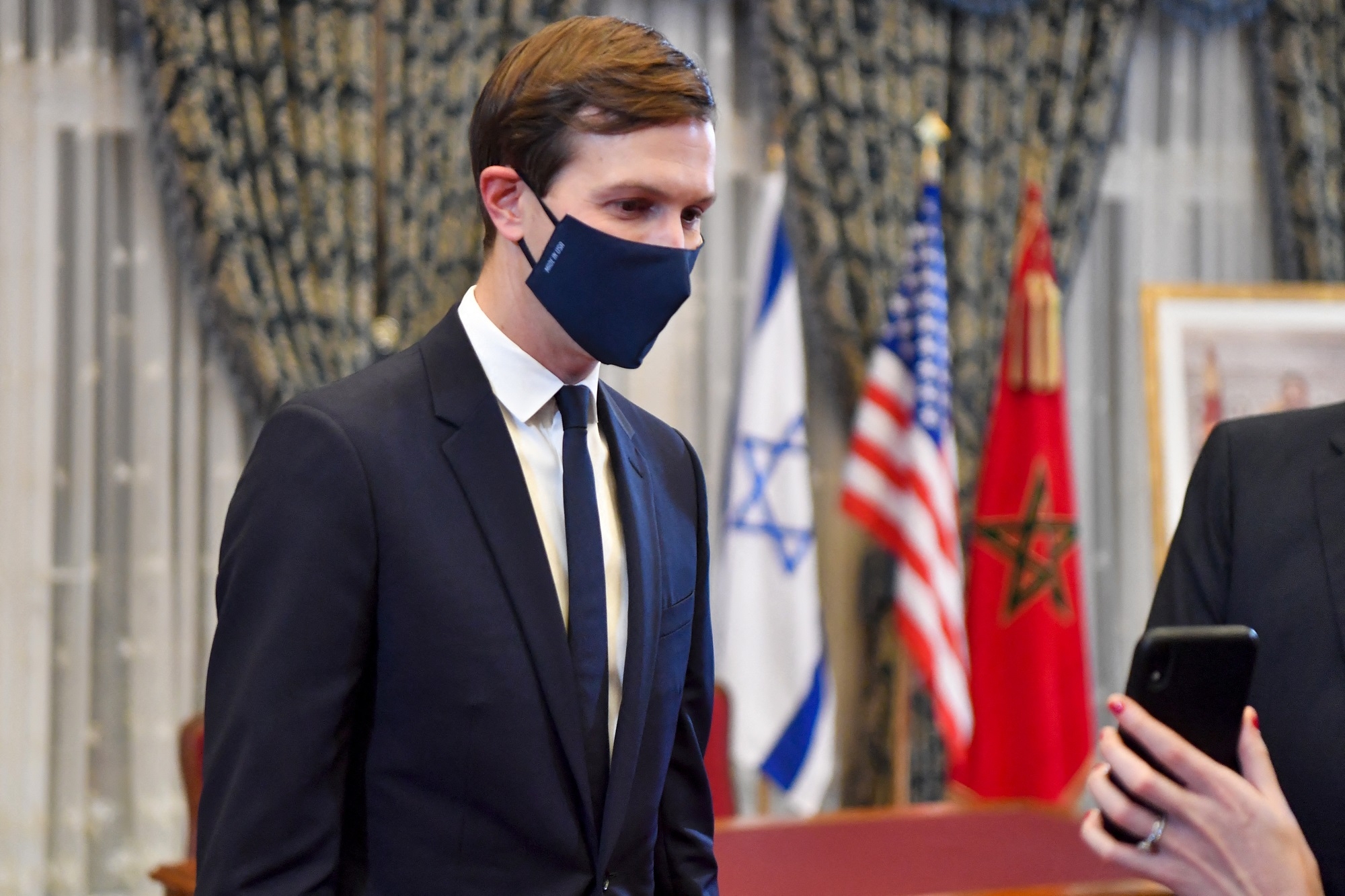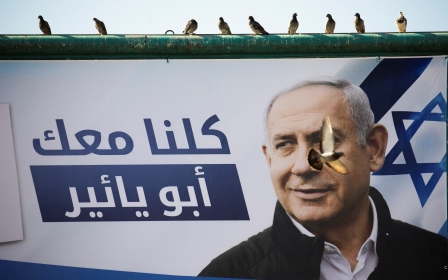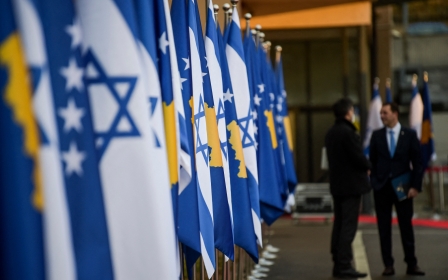Saudi Arabia-Israel normalisaton is 'in sight', says Jared Kushner

Jared Kusher, Donald Trump's son-in-law who served as an adviser in the previous US administration, said normalisation between Saudi Arabia and Israel is "in sight", proclaiming that "we are witnessing the last vestiges of what has been known as the Arab-Israeli conflict".
In a column published in the Wall Street Journal on Sunday, Kushner enumerated what he portrayed as foreign policy achievements in the Middle East by Trump and urged President Joe Biden to continue efforts to establish formal ties between Arab states and Israel.
The former presidential adviser revealed that Oman, Qatar and Mauritania were close to signing normalisation agreements with Israel.
Mauritania had diplomatic relations with Israel, but it froze the ties in 2009 after the brutal Israeli war in Gaza.
"These relationships should be pursued aggressively - every deal is a blow to those who prefer chaos," Kushner wrote.
New MEE newsletter: Jerusalem Dispatch
Sign up to get the latest insights and analysis on Israel-Palestine, alongside Turkey Unpacked and other MEE newsletters
Saudi-Israel ties
He added that a deal to establish diplomatic relations between Saudi Arabia and Israel was also close.
"The kingdom dipped a toe in the water by granting overflight rights to Israel and, most recently, allowing an Israeli racing team to participate in the Dakar Rally," Kushner said.
"The Saudi people are starting to see that Israel is not their enemy. Relations with Israel are in the Saudi national interest and can be achieved if the Biden administration leads."
'The Saudi people are starting to see that Israel is not their enemy'
- Jared Kushner
Saudi officials have repeatedly said that the kingdom remains committed to the Arab peace initiative, which conditions recognising Israel on the establishment of an independent Palestinian state within the 1967 borders.
But Saudi Arabia's powerful Crown Prince Mohammed bin Salman met secretly with Israeli Prime Minister Benjamin Netanyahu in the kingdom in November, according to several Israeli media reports at the time.
Touted by Trump and his aides as a great diplomatic achievement, the normalisation deals between Arab states - including the UAE, Bahrain, Morocco and Sudan - and Israel did not solve the conflict between Israelis and Palestinians.
None of the normalising Arab countries had ever been at war with Israel.
Israel continues to build and expand settlements in the occupied Palestinian territories in what amounts to de-facto annexation of the land on which a future Palestinian state would be established.
UN experts and human rights groups, including Israel's B'Tselem, have accused Israel of enforcing an apartheid regime against Palestinians.
The Biden administration has said that formal relations between Arab states and Israel are not a substitute for peace between Israelis and Palestinians, but it has praised and vowed to continue with normalisation efforts.
"I think the initiatives that led to steps by countries to normalise relations with Israel were a very good thing and something we want to build on," US Secretary of State Tony Blinken told lawmakers during a hearing last week.
'Real-estate dispute'
In his column, Kushner said the normalisation deals proved that the Israeli-Palestinian conflict is a "real-estate dispute" that should not affect Israel's relations with the broader Arab world.
"One of the reasons the Arab-Israeli conflict persisted for so long was the myth that it could be solved only after Israel and the Palestinians resolved their differences. That was never true," he wrote.
On broader foreign policy issues, Kushner praised the Biden administration's approach to Iran for refusing to take the first step to revive the nuclear deal.
In 2018, Trump had nixed the multilateral pact, known as the Joint Comprehensive Plan of Action (JCPOA), which saw Iran scale back its nuclear programme in exchange for lifting sanctions against its economy.
Since then, Tehran has been loosening its commitments to the agreement.
Biden had pledged to revive the deal, but a diplomatic impasse has ensued, with each party saying the other side should return to full compliance first.
Iran also declined to rush to direct talks with the United States at the invitation of European signatories to the JCPOA.
"While many were troubled by the Biden team’s opening offer to work with Europe and rejoin the Iran deal … I saw it as a smart diplomatic move," Kushner said.
"The Biden administration called Iran’s bluff. It revealed to the Europeans that the JCPOA is dead and only a new framework can bring stability for the future.
"When Iran asked for a reward merely for initiating negotiations, President Biden did the right thing and refused."
Middle East Eye delivers independent and unrivalled coverage and analysis of the Middle East, North Africa and beyond. To learn more about republishing this content and the associated fees, please fill out this form. More about MEE can be found here.





